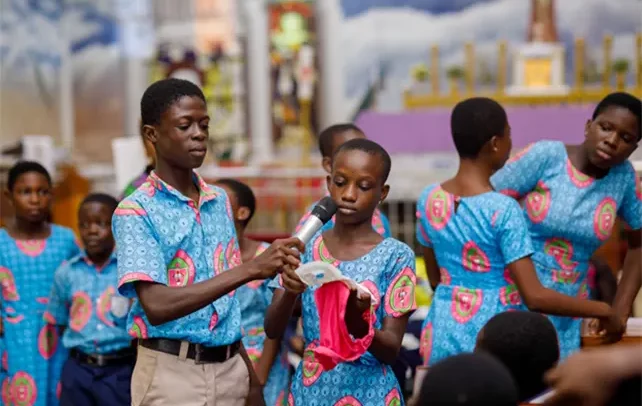Some of the school children who were trained
School children who have reached their puberty stage have been called upon to observe proper hygiene, particularly, during menstruation.
The call was made during the training of about 3,619 school children on critical adolescent reproductive health issues.
The training programme was organised by Gold Fields Ghana Foundation under its School Health Education Programme (SHEP).
The Foundation, in collaboration with the Tarkwa-Nsuaem Municipal Health Directorate and the Municipal Education Directorate, introduced SHEP to train students in host communities’ basic public schools to be peer educators.
It is therefore expected that the 3,619 students who were trained will help raise awareness and educate their peers on adolescent reproductive issues.
As part of its effort, the Foundation together with SHEP coordinators has organised a Menstrual Hygiene Week Celebration across 15 selected host communities’ basic public schools in the Tarkwa and Damang communities.
The week-long initiative was designed to promote awareness and education on menstrual hygiene among both girls and boys.
Project Coordinator of the Foundation, Ayishetu Mohammed, noted that observing Menstrual Hygiene Day has become an integrated part of the academic calendar every term for students in public schools across Tarkwa and Damang.
“This year, as part of the global celebration of Menstrual Hygiene Day, teams from Gold Fields Ghana Foundation visited 15 of the host community schools.
“The exciting part was witnessing the peer educators in action, educating their fellow peers on menstrual hygiene,” she stated.
“I can confidently say the peer educators are doing exceptionally well, and the programme has been truly impactful,” she indicated.
She said the most striking transformation has been the change in boys’ behaviour.
“At first, when we visited some schools, boys would often tease girls who had started menstruating. But now, this is a thing of the past,” she pointed out.
From Emmanuel Opoku, Takoradi


